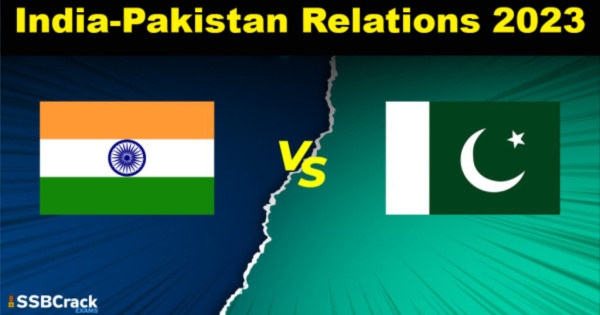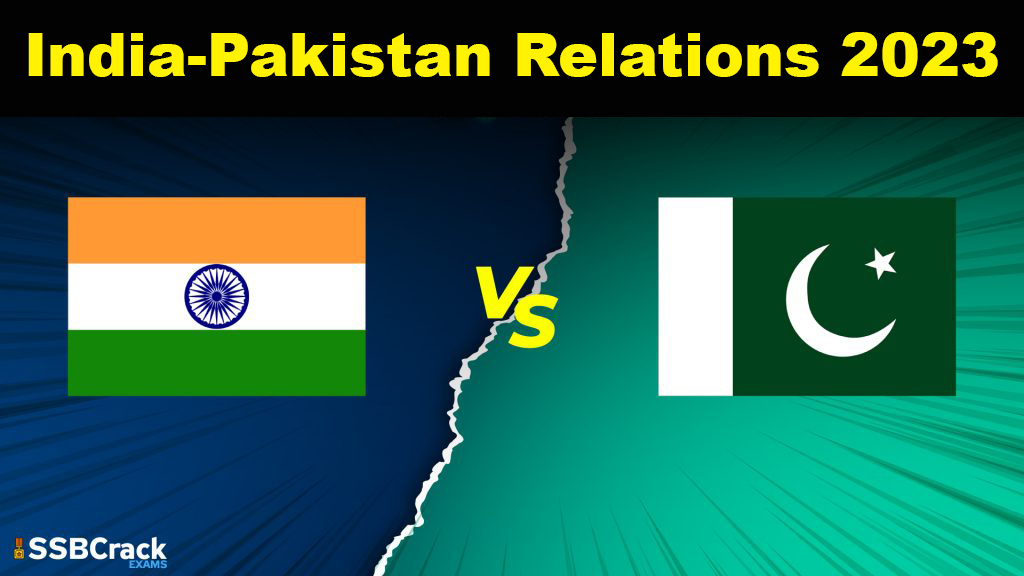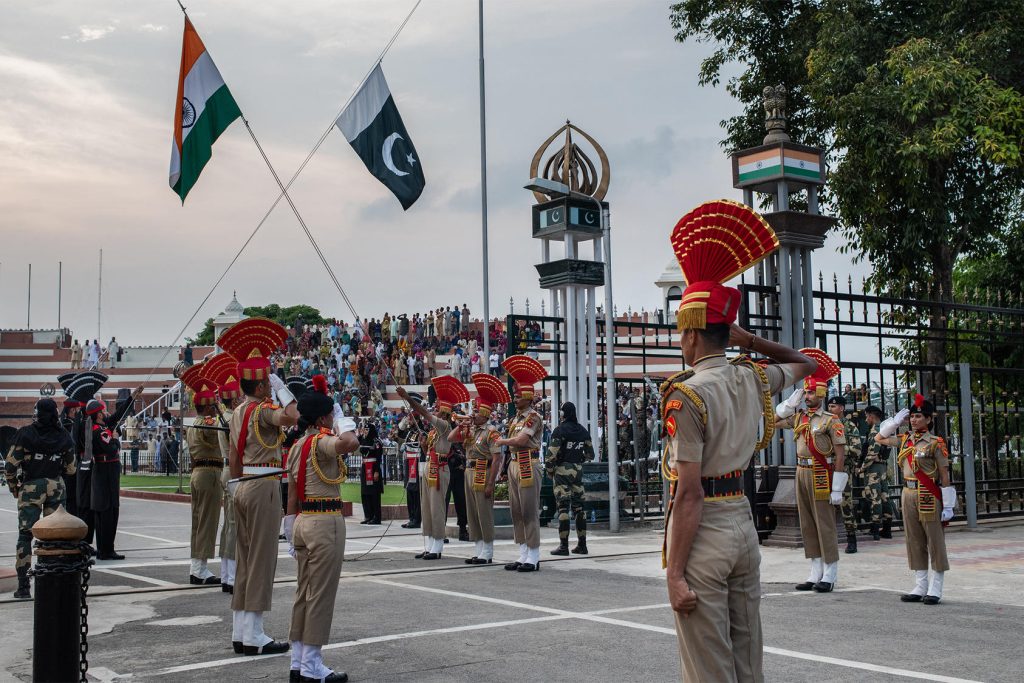Peaceful articles about India-Pakistan relations have recently been published in Pakistani media. Expert reports and commentary on the benefits of improving ties between the two neighbors have appeared in numerous newspapers and TV shows. These statements have been written by former ambassadors, top military leaders, and seasoned journalists, among others.
What is going on?
Aizaz Ahmad Chaudhry, a former Pakistani foreign secretary, Abdul Basit, a former high commissioner to India, Ashraf Jehangir Qazi, a former Pakistani diplomat, Maleeha Lodhi, and a host of others are among these peace activists. Ironically, they were leading their nation’s dog-whistle campaign against India during their prime and had a belligerent demeanor. They appear to have realized that Pakistan’s chances of becoming a stable, let alone rich, country are slim without cordial ties with India.
All of this is taking place just as relations are about to take a big turn for the worst. What cause(s) a potential slump in the upcoming days, weeks, months, and years? Elections. Both nations have elections planned for the latter part of this year and the beginning of 2024, respectively.
Once the present National Assembly (Pakistan Parliament) has served its full term, elections in Pakistan may take place in six months. It will be another six months before it happens in India. But who can speak authoritatively about Pakistan? Past military rulers imposed themselves on Pakistan with the “best of intentions,” and another dose of military dictatorship is never far away.
Question Arises
Will Pakistan be able to negotiate a lifeline and keep its head above the sea of catastrophic economic circumstances? Or will it descend even further into all forms of anarchy, including political instability, economic upheaval, and civil unrest?
“The ongoing growth of mistrust between the two countries is one significant factor for instability in South Asia,” Aizaz Ahmad Chaudhry wrote in Dawn. Although some efforts were made to increase mutual trust, they were never successful enough to support the countries’ establishment of a regular, friendly relationship. The term “constant cultivation of mistrust between two countries” appears to be the most significant one in the sentence above. What causes this mistrust, and why? Our official position is that Pakistan’s support of terrorism in Jammu & Kashmir and elsewhere in India is the main source of mistrust. On the other side, Pakistan frequently asserts that improved relations between India and Pakistan are hampered by the “unresolved Kashmir dispute”.
With their starkly divergent positions, reconciliation between the two doesn’t even appear to be possible in the near future, let alone in the coming months or years. In addition, a new geopolitical bipolarity is emerging, with China acting as the second pole to the US, which is the largest military and economic power in the world.
Bitter History of Pakistan
Who instigated the two countries’ war in 1947? So, it all began in October 1947, when Pakistan attempted to seize Jammu & Kashmir. Who instigated the India-Pakistan War in 1965? Since Pakistan initiated it, India cannot even possibly be held responsible. Who instigated the India-Pakistan war in 1971? Pakistan once more. 11 of India’s airfields were attacked by Pakistan on December 3, 1971. India began a counterattack after gathering its strength, and by December 16 East Pakistan had vanished. After severing ties with its Western wing, Bangladesh emerged as a distinct country. India had skillfully performed the role of the midwife in this birth.
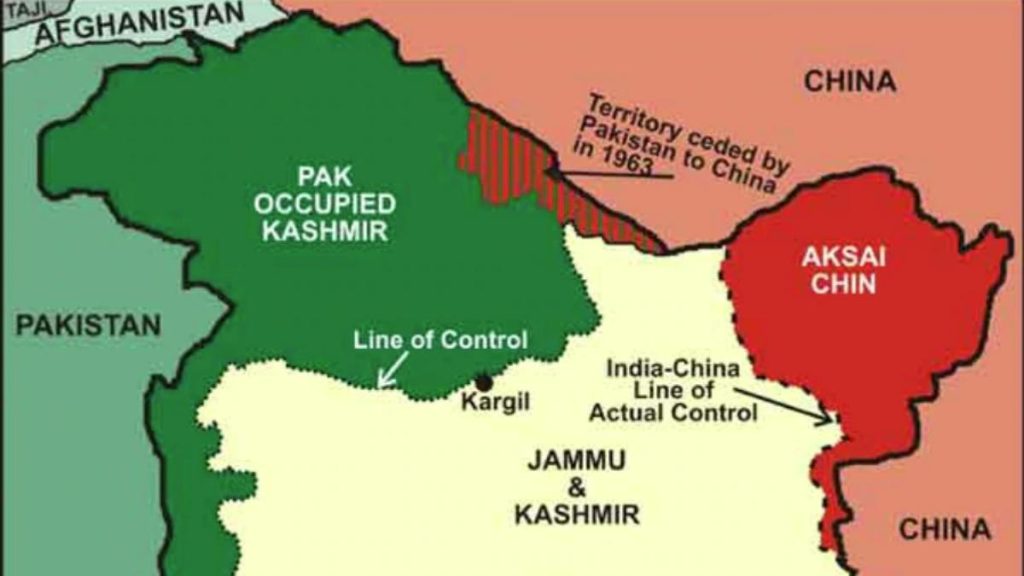
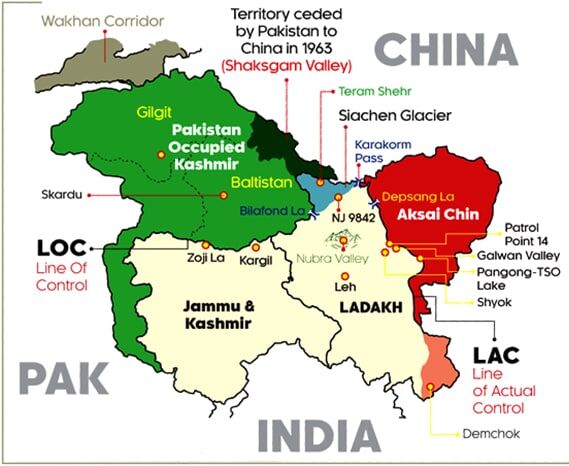
Who instigated the Kargil War in 1999? Once more, it was Pakistan, and General Pervez Musharraf had devised the entire scheme. Ironically, the person most vocal about the need for better India-Pakistan relations was the mastermind of the Kargil operation. Ironically, the Musharraf era—as his tenure as Pakistan’s president is frequently referred to—was arguably the finest time for Indo-Pak ties. One needs to keep in mind that J&K was Operation Gibraltar’s primary target throughout the 1965 war. Pakistan had determined that it could easily take over regions where the upper stems of Western rivers flowed.
This is what the announcement by India to Pakistan on January 25th of this year about starting negotiations to amend the Indus Waters Treaty (IWT) portends. The announcement is comparable to the brief official trailer of a feature-length motion picture that is published before the film opens in theatres. Another way to put it is that the notice is only the very thin edge of the wedge that India is trying to drive. Since Pakistan’s founding, India has been the target of hostile propaganda, terrorism-related proxies, and open warfare. There is no reason to think that these current attempts, which have all failed, will succeed.
India is way ahead of Pakistan
On March 3, India’s foreign currency reserves were close to $563 billion, while Pakistan’s were only about $3 billion at the time. Pakistan is currently attempting to obtain funds from the International Monetary Fund (IMF) for the 22nd time since its inception. India, on the other hand, had sought IMF assistance seven times, the most recent being in 1991. These figures simply demonstrate how different their journeys have been.
To crack the SSB Interview and join the Indian Army as an Officer, You can join our SSB interview live classes batch and we recommend you to Enroll SSB INTERVIEW ONLINE COURSE. Trusted by thousands of defence aspirants.
